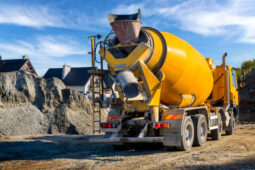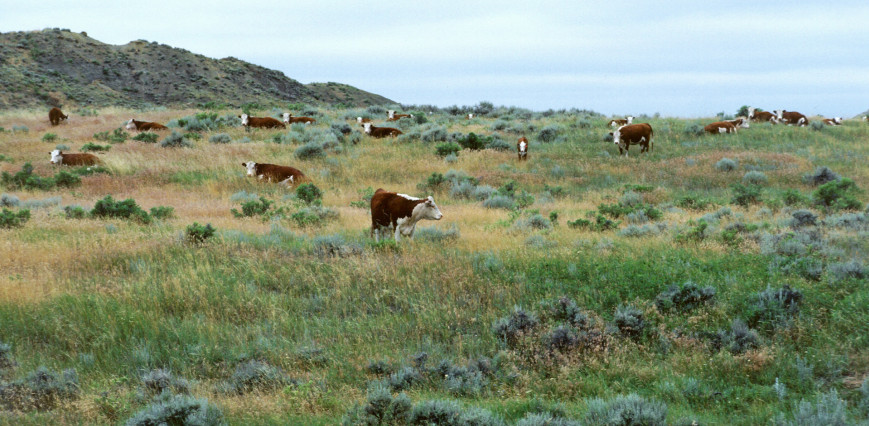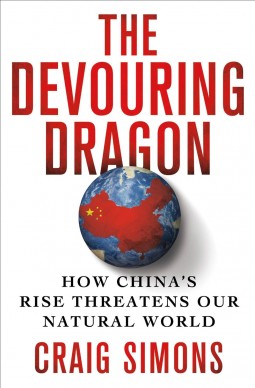
Tackling Cement’s Huge Carbon Footprint (start time: 0:58) It’s hard to imagine modern society without a key material that so many structures depend on–cement. Think of our houses, apartment and office buildings, hospitals, parking lots, bridges, and, increasingly, massive data centers of big-tech companies. But that societal glue of sorts comes with a big climate price tag. Cement production accounts for more than 7 percent of global greenhouse gas emissions. That’s way less than the amount from coal and oil & gas production, but roughly double the emissions from aviation. So, finding ways to reduce the carbon footprint of cement could go a long way toward curbing the momentum of climate change and its impacts. But some players in the industry, as well as in state and federal governments, are making strides to clean up the cement industry’s act. In this week’s How On Earth, host Susan Moran interviews Anish Tilak, a civil and environmental engineer who is a a manager of the Carbon-Free Buildings program at RMI (founded as Rocky Mountain Institute); and Cory Waltrip, a senior manager at the startup Sublime Systems, in Somerville, Mass.
Host / Show Producer: Susan Moran
Engineer: Jackie Sedley
Executive Producer: Beth Bennett
Listen to the show here:
Podcast: Play in new window | Download (Duration: 28:23 — 39.0MB)
Subscribe: RSS



 The Blue Plate in a Red-hot World (start time: 7:46) While adding cream to your morning cup of coffee, or digesting the hamburger that you grilled last night, you might not have been asking yourself, What’s the carbon footprint of these ingredients and meals? Understandable. Our guest today, ecologist
The Blue Plate in a Red-hot World (start time: 7:46) While adding cream to your morning cup of coffee, or digesting the hamburger that you grilled last night, you might not have been asking yourself, What’s the carbon footprint of these ingredients and meals? Understandable. Our guest today, ecologist 

 When it comes to reducing greenhouses gases, every little bit helps, and that includes managing the greenhouse gases produced by how we grow our food. Raising livestock and growing crops both generate greenhouse gases, and to gauge their impact, a new study takes the long range view. The results were published in a paper: “Measuring and mitigating agricultural greenhouse gas production in the U.S. Great Plains, 1870-2000” in the Proceedings of the National Academy of Sciences. It analyzes 100 years of agricultural production, and it takes this look at farming close to home – it focuses on the bread basket of the United States – the Great Plains, which includes eastern Colorado. Here to tell us more are scientists
When it comes to reducing greenhouses gases, every little bit helps, and that includes managing the greenhouse gases produced by how we grow our food. Raising livestock and growing crops both generate greenhouse gases, and to gauge their impact, a new study takes the long range view. The results were published in a paper: “Measuring and mitigating agricultural greenhouse gas production in the U.S. Great Plains, 1870-2000” in the Proceedings of the National Academy of Sciences. It analyzes 100 years of agricultural production, and it takes this look at farming close to home – it focuses on the bread basket of the United States – the Great Plains, which includes eastern Colorado. Here to tell us more are scientists 
 Feature #1 – China’s Environmental Impact (start time 4:46): China’s meteoric economic rise is causing harmful side effects, ranging from choking air pollution domestically to threatened forests, wildlife and air quality around the globe. Of course China’s per capita greenhouse gas emissions still pale in comparison to those in the United States, and roughly one-third of China’s CO2 emissions are generated to manufacture goods that are exported to the U.S. and other nations. Craig Simons, a former journalist and author of a recently published book,
Feature #1 – China’s Environmental Impact (start time 4:46): China’s meteoric economic rise is causing harmful side effects, ranging from choking air pollution domestically to threatened forests, wildlife and air quality around the globe. Of course China’s per capita greenhouse gas emissions still pale in comparison to those in the United States, and roughly one-third of China’s CO2 emissions are generated to manufacture goods that are exported to the U.S. and other nations. Craig Simons, a former journalist and author of a recently published book,  Feature #2 – 100 Year Starship (start time 15:35): Science and exploration tend to be long-term commitments. That’s well-known by fans of the “Hitchhiker’s Guide to The Galaxy” series, where the computer Deep Thought did calculations for 7.5 million years to find the answer to The Ultimate Question of Life, the Universe, and everything. However, projects on our world tend to be limited by shorter-term political and funding cycles. So it is hard enough to consider projects that require thinking a decade into the future, beyond many political lifetimes. What about projects that require thinking a century or more into the future, many generations from now? Well, that is exactly what one group of space exploration advocates is working toward. The project is called the
Feature #2 – 100 Year Starship (start time 15:35): Science and exploration tend to be long-term commitments. That’s well-known by fans of the “Hitchhiker’s Guide to The Galaxy” series, where the computer Deep Thought did calculations for 7.5 million years to find the answer to The Ultimate Question of Life, the Universe, and everything. However, projects on our world tend to be limited by shorter-term political and funding cycles. So it is hard enough to consider projects that require thinking a decade into the future, beyond many political lifetimes. What about projects that require thinking a century or more into the future, many generations from now? Well, that is exactly what one group of space exploration advocates is working toward. The project is called the